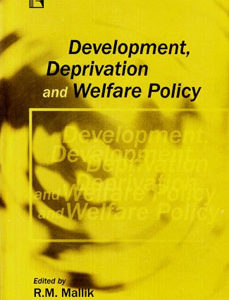DEBATING DEVELOPMENT: NGOs and the Future
₹995.00 Original price was: ₹995.00.₹771.00Current price is: ₹771.00.
25 in stock
Non-government organisations working in the humanitarian and development sectors won official approval in the 1980s and 1990s, but there are signs now that they are losing favour. The NGO sector stands accused by some of complacency and self-interest, on the one hand, and of being ineffectual and irrelevant on the other. NGOs are increasingly challenged to demonstrate their legitimacy as representative voices of civil society. NGOs themselves are taking a hard look at their mandates, their core values, and their role on a changing international stage.
Contributors to this volume reflect on what kind of development will eradicate poverty, and what types of agency are best suited to the task. Leading representatives of NGOs, development think-tanks, and civil society organisations, as well as scholars and activists, ask: What model of international co-operation can deliver social and economic justice? And what does this mean for NGOs in the future?
Related products
Globalization & Development
Globalization & Development
Globalization & Development
Globalization & Development
Globalization & Development
THEORIES OF DEVELOPMENT: Contentions, Argument, Alternatives (2nd edition)
Globalization & Development
GLOBALIZATION FOR DEVELOPMENT: Trade, Finance, Aid, Migration, and Policy
Globalization & Development
Globalization & Development
DEVELOPMENT, DEPRIVATION AND WELFARE POLICY: Essays in Honour of Prof. Baidyanath Misra











